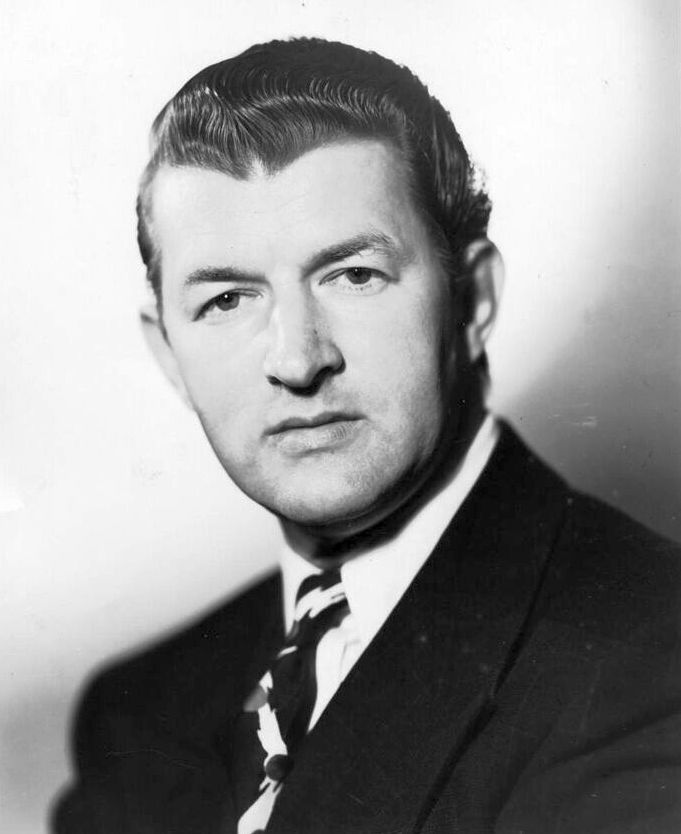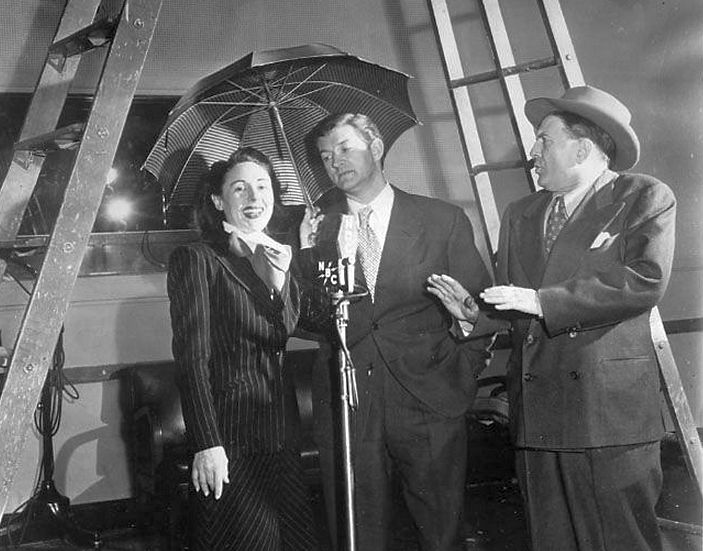“Champion of the people! Defender of truth! Guardian of our fundamental rights to life, liberty, and the pursuit of happiness!”
Posted by Ivan G. Shreve, Jr. on Apr 3rd 2020
During the Golden Age of Radio, it was standard practice for the comedians headlining the most popular programs to work 39 weeks out of the year (which is kind of fitting when you work Jack Benny into the equation) and then take a summer break in the interim. Mr. District Attorney, one of the medium’s most popular crime dramas, never enjoyed that luxury, according to old-time radio historian John Dunning. “It was a year-round operation. In the summers, when such comics as Jack Benny and Bob Hope were on vacation, Mr. DA often soared to the top of the ratings; it was seldom out of the top ten, even in midseason.”
Mr. District Attorney made its debut on this date in 1939, replacing Amos ‘n’ Andy, which had defected to CBS. That’s why the early years of the program utilized a weekday quarter-hour format (airing at 7pm). On June 27 of that same year, Mr. DA expanded to a half-hour as a summer replacement for Bob Hope’s Pepsodent show. On October 1, it would find itself on NBC Blue’s schedule full-time. It later switched to NBC, in April of 1940, to be sponsored for more than ten years by Bristol Myers (Vitalis). So while funsters like Edgar Bergen and Fred Allen enjoyed a little R-and-R in the summer, Mr. District Attorney still had cases on the docket.
Mr. District Attorney was created by Edward A. Byron, a one-time law student who abandoned his studies for a radio career, working out of WLW in Cincinnati. The inspiration for the fictional prosecutor came from Thomas E. Dewey, New York City’s famed district attorney, who parlayed his crimebusting activities into governorship of the Empire State (and later two-time candidate for the presidency). Radio producer Phillips H. Lord, the man who brought Gang Busters to radio audiences, was the co-creator of Mr. DA. He would later be “bought out” by Byron (who paid Lord a hefty sum for the show’s title) but retained both a credit on the show and royalties.

The lead character on Mr. District Attorney never had an actual name until he made a brief transition to TV (more on this in a sec). The supporting cast usually referred to him as “Chief” or “Boss.” The role was originated by Dwight Weist and was then briefly essayed by the man who maintained Inner Sanctum’s creaking door, Raymond Edward Johnson. It would be Jay Jostyn who portrayed the heroic prosecutor the longest, from 1940 to the program’s final network broadcast (on ABC) on June 13, 1952. Mr. District Attorney also had a brief run as a syndicated program (from the Frederick W. Ziv stables) from 1952-53. By that time, the character was identified as “Paul Garrett,” and was played by David Brian. (The syndicated version demonstrated that the series was still popular, airing in over 200 markets.)
Long before television producer Dick Wolf (of the Law & Order franchise) devised the concept of using “ripped-from-the-headlines” stories as plots of his shows, the creative minds behind Mr. District Attorney used similar methods to create exciting radio adventures. Byron was a student of crime and possessed an uncanny knack for anticipating trends and scooping the newspapers on a regular basis. As Dunning writes in On the Air, “Con games occurred most often in the spring; juvenile delinquency in the summer; husbands and wives killed each other in the fall; burglaries were most common in winter.” But Ed Byron was more than just a dusty encyclopedia of crime facts—a stickler for realism, he researched his material by going undercover and rubbing elbows “with thieves, lackeys, and off-duty cops” in his quest for program fodder. Mr. District Attorney also benefitted from such writing talent as Jerry Devine (who later went on to create This is Your FBI), Finis Farr, Harry Herman, and Robert J. Shaw.

It’s important to remember that the titular Mr. District Attorney was only one man and he needed a crackerjack staff to assist him in his vendetta against the bad guys. His secretary was Miss (Edith) Miller and was portrayed throughout the show’s entire run by Vicki Vola. Len Harrington was Mr. DA’s investigator (a former cop), played initially by Walter Kinsella and then Len Doyle (from 1940 on). Eleanor Silver and future What’s My Line panelist Arlene Francis were heard as Miss Rand, receptionist to Mr. DA. Maurice Franklin was the “Voice of the Law,” responsible for the program’s memorable opening (“it shall be my duty as district attorney not only to prosecute to the limit of the law all persons accused of crimes perpetuated within this county but to defend with equal vigor the rights and privileges of all its citizens…”).
At the height of Mr. District Attorney’s popularity, the show inspired a brief movie franchise (from Republic Pictures). It began with the appropriately titled Mr. District Attorney in 1941 and was followed by The Carter Case (1941) and Secrets of the Underground (1942). The film series used a completely different set of characters, however, and if not for the opening credits referencing the radio program in each of the entries, audiences might not have made the connection. A second attempt at jumpstarting a Mr. DA movie series came from Columbia Pictures in 1947. The resulting Mr. District Attorney hewed a little closer to the radio show’s concept. While Mr. District Attorney was still airing on radio, the program migrated to TV with Jostyn, Vola, and Doyle all reprising their roles. The show aired over ABC-TV from October 1, 1951 to June 23, 1952, alternating weekly with another radio lawyer transplant, The Amazing Mr. Malone (a.k.a. Murder and Mr. Malone). Mr. DA resurfaced in 1954, when Ziv tackled a brief syndicated series. In this effort, David Brian reclaimed his earlier radio gig as “Paul Garrett,” with Jackie Loughery as “Miss Miller.”

Three of the actors who played Mr. District Attorney—Dwight Weist, Jay Jostyn, and David Brian—are featured in the Radio Spirits collection Mr. District Attorney, which spotlights broadcasts from 1939 (including the series’ debut broadcast) to 1953. Also included in the set is a 1939 promotional show featuring fellow district attorneys from around the country. Happy anniversary to Mr. DA!

